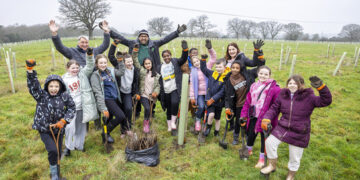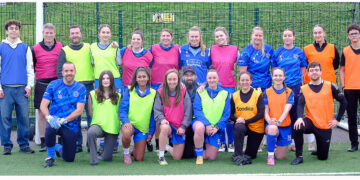In times of uncertainty we often turn to loved ones for reassurance and guidance, but what if the circumstances mean face to face interaction is out of the question?
TED, an online platform showcasing free philosophical and educational videos on a range of topics, has become an information hub for an increasing number of internet users during lockdown as they search for new approaches to dealing with the present.
Since launching in 2009, the American media company has hosted close to 50,000 talks; many of which have been recorded and published on its website.
Topics range from the future of space exploration to the secret to lifelong friendship- here are 10 videos which may help during this time.
Tackling the emotional challenge of separation, this talk presents tools for creating and maintaining relationships with family and co-workers during the coronavirus pandemic. Priya Parker explains how groups of people usually connected in the real world should use virtual interactions to guide each other through this time. The talk is useful for anyone struggling with loneliness and the grief of missing loved ones, as well as teachers and leaders who are seeking new and effective ways to connect with their groups.
Psychologist Susan David give her advice for building resilience, courage and joy throughout the pandemic. She offers guidance on talking to children about their emotions, as well as how to face feelings including grief, loneliness and anxiety and understanding what they tell us about our values.
For some, the lockdown period has included more lie ins and sleep than could ever be dreamed of in normal life, but this hasn’t always meant a good night’s sleep. Sleep scientist Matt Walker discusses the impact of sleep on the mind and body and the relationship between getting a good night’s sleep and immune health.
Rabbi Lord Jonathan Sacks addresses topics including leadership, fear, death and hope. He explains how this collective experience could help us to move towards a better future for the globe by using courage, hope and empathy to overcome the crisis and devise a more just world.
Distanced from our normal routines and activities, creative subjects have thrived during this crisis. Novelist Amy Tan gives a detailed exploration of creativity and explains how hers may have evolved. Tan aims to answer the question ‘How do we create something from nothing?’
Despite the satisfaction independence can bring, it is necessary that we come together and help each other through this crisis. Social psychologist Heidi Grant shares how we can transform our requests for help from an uncomfortable and embarrassing process, to one which is rewarding for all of those involved. This talk explores how to ask for help from a loved one, friend, co-worker or even a stranger.
Delivered in 2012, this insightful talk uses the analogy of a shipwrecked sailor to illustrate how fear spurs our imagination to prepare for the possible consequences of a scenario. Novelist Karen Thompson Walker explains what we can learn about the human brain from children’s fears, and how to distinguish between fears worth listening to and those which are not. This talk is useful to anyone struggling to cope with what both the present and future holds.
Relevant to the impact the coronavirus crisis is having on individuals’ mental health, psychologist Guy Winch draws on his experiences to explain why self-care is becoming an increasingly necessary part of our everyday self-care routines.
10 minutes may seem like only a small fraction of your day, but it’s surprising how many people are incapable of doing nothing for this very short amount of time. Mindfulness expert Andy Puddicombe explains how putting off texting, talking and even thinking for just 10 minutes can help to refresh your mind.
In a time when the world has been forced to stop, the slowness of this period is something we can appreciate and make the most of. Journalist Carl Honore offers his insight into the impact of speed on productivity and quality of life and how stopping to appreciate our lives can help us to live them in a better way.
TED Talks are free to watch and can be accessed at www.ted.com.












































